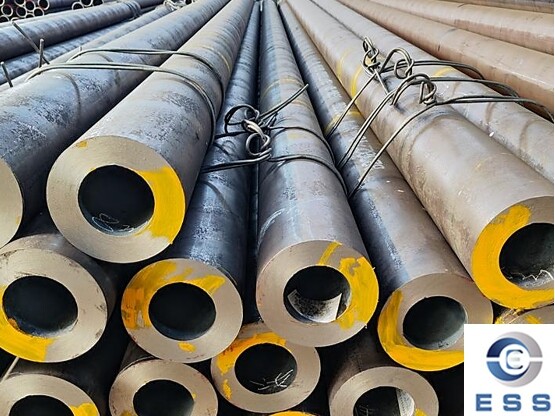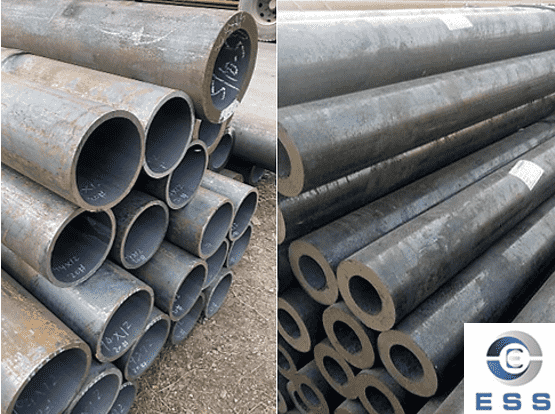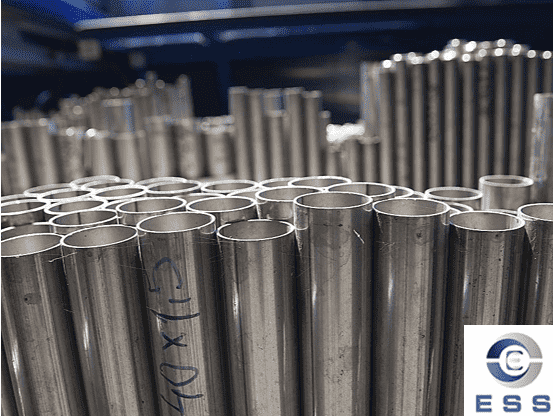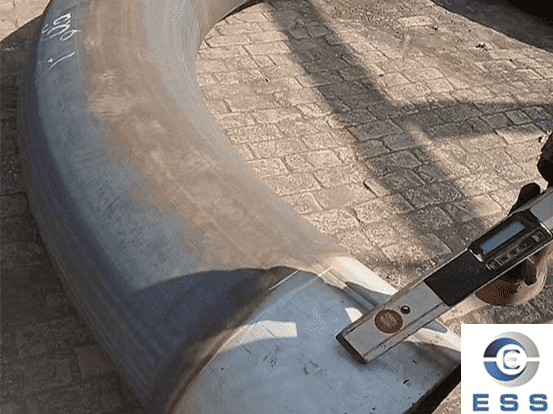
With the continuous improvement of building
quality and industrial standards, the durability and safety requirements of
pipeline systems are also getting higher and higher. The galvanized seamless
pipe is gradually becoming an ideal choice for fire protection, air
conditioning, circulating water systems, and gas transportation due to their
excellent corrosion resistance and outstanding pressure bearing capacity. The
following will deeply analyze the calculation method and key influencing
factors of the pressure on galvanized seamless pipes to help you make wise
decisions in engineering material selection and system design.
What is galvanized seamless pipe
Galvanized seamless pipes are seamless
pipes processed by hot-dip galvanizing. After being covered with a thick zinc
layer, their corrosion resistance is significantly improved and their service
life is extended. Compared with other seamless pipes, galvanized seamless pipes
perform better in harsh environments.
Calculation method for pressure on
galvanized seamless pipes
Generally speaking, the pressure on
galvanized seamless pipes can be calculated using a specific formula. This
formula takes into account factors such as the wall thickness, outer diameter,
tensile strength of the steel pipe material, and safety factor of the seamless
pipe. The formula is:
“Pressure = (Wall Thickness × 2 × Tensile Strength of Steel Pipe
Material) / (Outer Diameter × Coefficient)”
(Wherein, the safety factor is selected
according to the pressure range to ensure the safety of the seamless pipe when
it is under pressure.)
The specific pressure to be borne needs to
be determined according to the actual situation. For example, a 20# seamless
steel pipe with an outer diameter of 114mm and a wall thickness of 12mm can
withstand a pressure of 14.39MPa under the condition of a safety factor of 6.
However, its pressure resistance is not constant, but is affected by many
factors.
Factors affecting the pressure
resistance of galvanized seamless pipes
1. Wall thickness
Wall thickness is one of the key factors
affecting the pressure resistance of galvanized seamless pipes. Generally
speaking, the thicker the wall, the stronger the pressure resistance of
galvanized seamless pipes.
2. Outer diameter
The outer diameter also has a certain
influence on the pressure resistance of galvanized seamless pipes. Under the
same wall thickness and material conditions, galvanized seamless pipes with
smaller outer diameters tend to have higher pressure resistance.
3. Tensile strength of steel pipe material
Steel pipes of different materials have
different tensile strengths, which affects the pressure bearing capacity of
galvanized seamless pipes. The higher the tensile strength of the material, the
stronger the pressure bearing capacity of the galvanized seamless pipe made of
it. Seamless pipes of different materials such as mild
steel tube and carbon
steel pipe have different pressure bearing capacities due to different
material properties.
4. Safety factor
The safety factor is a factor introduced to
ensure that the seamless pipe has sufficient safety when under pressure.
Selecting a suitable safety factor according to the pressure range can ensure
the reliability of the seamless pipe in practical applications.
Summary
In summary, the pressure bearing capacity
of galvanized seamless pipes is not a fixed value, but is affected by many
factors. In practical applications, it is necessary to select the appropriate
seamless pipe specifications and safety factors according to the specific
situation to ensure its pressure bearing capacity and safety.
Read more: Seamless Steel Pipe Sizes













 Eastern Steel Manufacturing Co.,Ltd not only improve product production and sales services, but also provide additional value-added services. As long as you need, we can complete your specific needs together.
Eastern Steel Manufacturing Co.,Ltd not only improve product production and sales services, but also provide additional value-added services. As long as you need, we can complete your specific needs together.










